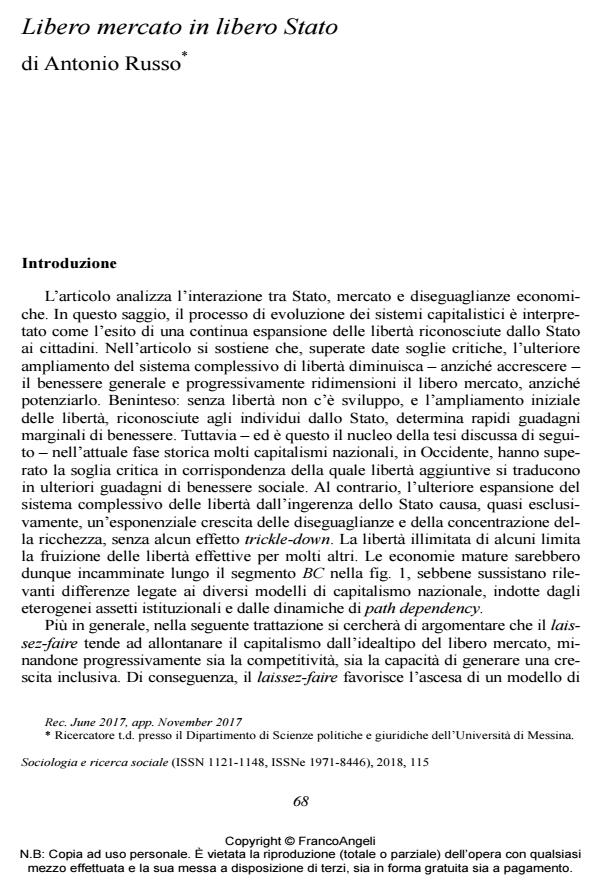Libero mercato in libero Stato
Journal title SOCIOLOGIA E RICERCA SOCIALE
Author/s Antonio Russo
Publishing Year 2018 Issue 2018/115
Language Italian Pages 26 P. 68-93 File size 451 KB
DOI 10.3280/SR2018-115005
DOI is like a bar code for intellectual property: to have more infomation
click here
Below, you can see the article first page
If you want to buy this article in PDF format, you can do it, following the instructions to buy download credits

FrancoAngeli is member of Publishers International Linking Association, Inc (PILA), a not-for-profit association which run the CrossRef service enabling links to and from online scholarly content.
- Hyper-globalization and capitalism: socio-political effects of the international economy Antonio Russo, in International Journal of Sociology and Social Policy /2021 pp.584
DOI: 10.1108/IJSSP-04-2020-0128
Antonio Russo, Libero mercato in libero Stato in "SOCIOLOGIA E RICERCA SOCIALE " 115/2018, pp 68-93, DOI: 10.3280/SR2018-115005